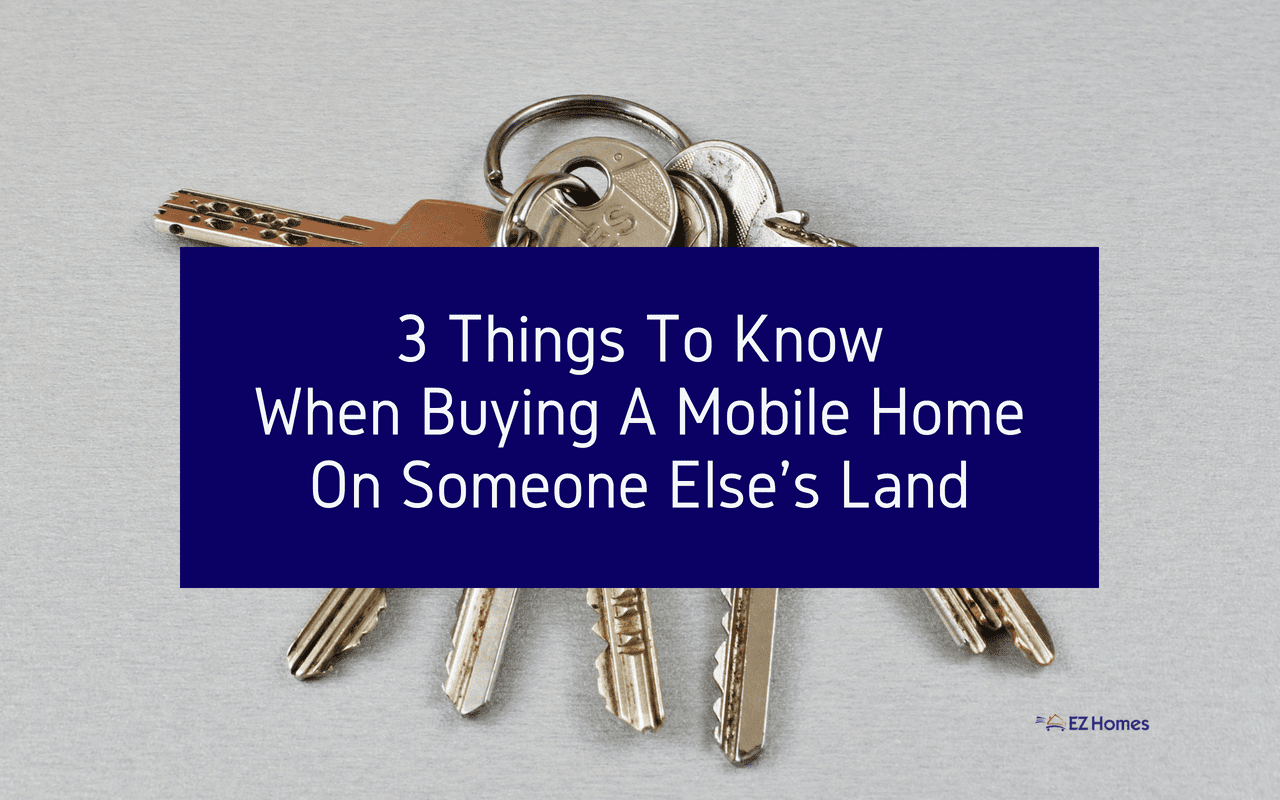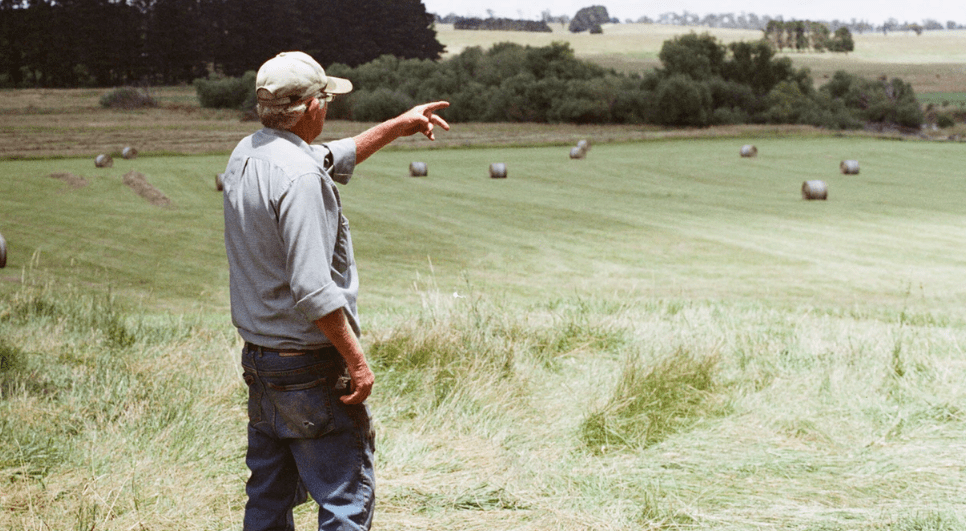There is a myriad of ways to buy that next home of yours, including but not limited to buying a mobile home on someone else’s land. There are a few nuance points to keep in mind if you’re looking to purchase a mobile home that currently resides on private land.

People will sell a mobile home on their land for multiple reasons. It’s plausible they simply used it as a temporary home while they constructed their site built home. Or maybe they used it as a home for the extended family but have decided sell it now for whatever reason.
Going into this purchase with the right knowledge will equip you to count the cost. It will also save you some grief if things aren’t as they appear. We’ll help you define and look for your deal breakers.
3 things to know when buying a mobile home on someone else’s land
Let’s look at three different things you should know before pressing forward with that purchase.
#1 You don’t own the land
First of all, if you’re buying a mobile home on someone else’s land, know that’s exactly what you’re buying. You’re signing to buy the mobile home, not the land it’s sitting on. This is fine so long as you’re aware of what’s involved in making such a decision.
There are a few things you’ll need to consider if that’s the kind of purchase you’re making. Because the expense doesn’t stop there. You need to think of what comes next. We’ll cover that in the next two points.
#2 There is rent and the future is far from certain
The second thing you should know is contingent on whether the seller wants you off their property. They may be interested in a rent arrangement.
If they are interested in being your landlord, that will save you the step of relocating the mobile home.

In addition to signing the mobile home’s title, you and the landowner will need to sign a lease agreement. This lease should lay out all the details of your use of the private land. It should explain what both the landlord’s and your responsibility, significantly as a tenant of his or her land.
While this can seem like an appealing arrangement, you do need to weigh the negative aspect.
As the land is not expressly used for mobile home lots, you can’t count on new property owners to welcome your presence on the property.
Additionally, you can’t count on the current property owners to never sell their land. Things happen in life, things we have no control over. So just be aware of the risk involved with renting from a private landowner.
#3 There is a cost to relocate the mobile home
Third thing you need to know before buying a mobile home on someone else’s land is the dilemma of relocation.
Most people who purchase a mobile home that sits on private property will need to have it moved.
This means you have to think about the mobile home’s next destination after purchase. You have two options: relocating the home to your own land or to a mobile home park.
Pros and cons that come along with either option
Taking your mobile home on your own land means you’ll have to invest in getting utilities to your mobile home. You may need to have the power company run lines out to your foundation. A good drilling company may be needed for water. But on the flip side, you do get your very own wide open space. You have plenty of room to bond with nature, hunt, fish, and enjoy country life.

Now when it comes to renting a lot at a mobile home park, there are other types of perks. You have a mobile home park manager to deal with utility problems. You have your own little nook in a tight-knit community of neighbors. Perhaps not as appealing, you do have a monthly rental fee to deal with. But perhaps you’ll find the freedom from keeping up with your own acreage a huge win.
In addition to thinking about where you’ll put your mobile home, you’ll need to think about how you’ll get it there. To move a mobile home, you’ll need to hire a company of professionals equipped to handle the logistics of moving and re-installing your mobile home. Will you have a permanent foundation or a temporary foundation? These are answers you need to figure out before you buy that home.
Don’t rush through what’s ultimately good for you
In the end, buying a mobile home on someone else’s land can give you a good deal if you look hard enough. Take your time and don’t rush into anything.
There are plenty of options out there and you don’t want to end up in a bad way just because you were in a hurry. Make a list of all the pros and cons and see if that mobile home is going to be a winner for your needs.
Now if you’re in the market to buy a mobile with land, we’ve got some ideas to help you in your hunt for the right place.


